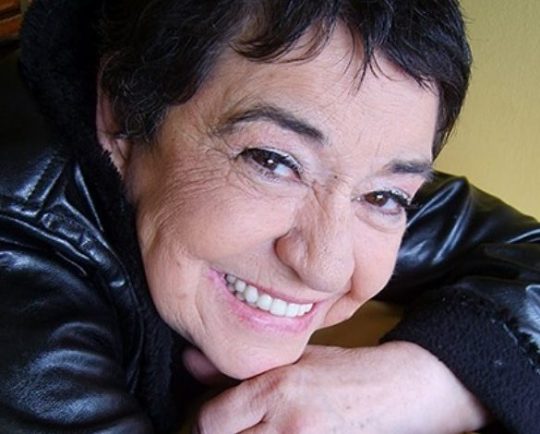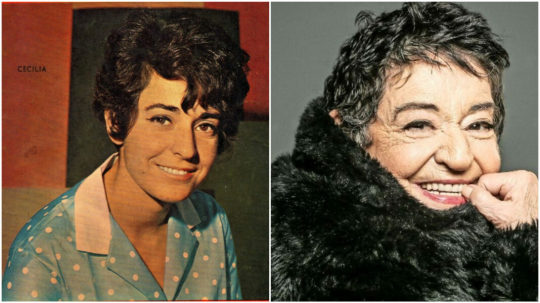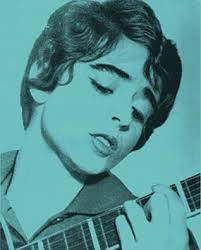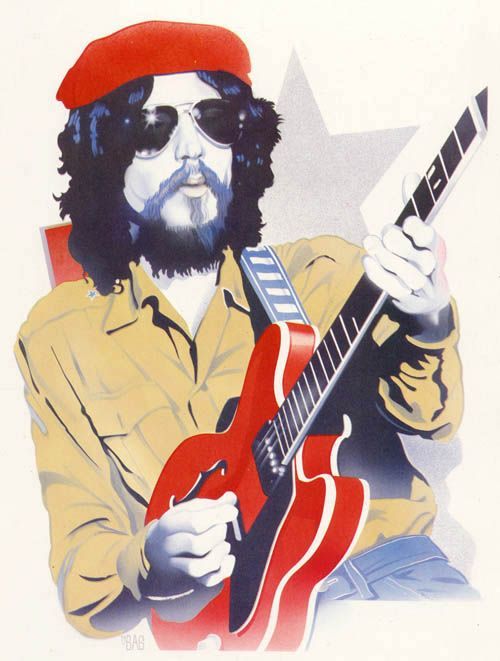#Cecilia Pantoja
Text


Café Tacvba is a Mexican Alternative Rock made in 1989 and known for their mix of traditional mexican music with Rock.
In addition to the commercial and critical success they have achieved, the group is recognized for its avant-garde cultural project which mixes rock and its usual themes with lyrics, stories and sounds extracted from Mexican popular culture, the latter thanks to the use in various songs. of instruments such as tololoche and jarana. Among the main awards obtained throughout his career, the Grammy and the Latin Grammy stand out.
Re achieved the gold record in Mexico for more than 40,000 copies sold, definitively putting the quartet on the Spanish rock map.
Theyve been on MTV their most famous songs are "Eres", "La ingrata" and "Aprovéchate". Propaganda Below;
"El Rubén es medio Joto, Re es una obra de arte y la mezcla entre folclore y rock es eximia"
"deben ser mi banda favorita mexicana, me encanta que se noten las influencias indígenas y populares y como se mezclan con influencias punk y urbanas 🔥"
Cecilia Pantoja or Cecilia la Incomparable was a Chilean Tango Rock Jewish musician and one of the earliest and pioneer women rockers from the 60s.
Cecilia broke out as a soloist in the full glory of the New Wave, rising towards the mid-1960s as the biggest youth star of the time, although her style and repertoire did not fully respond to the mold of the movement. Cecilia acquired her own personality with a diverse catalog of songs ascribed to the Latin and European musical tradition.
has won one President of the Republic National Music Award in 2019, and has been dubbed "Queen of the gays and ladies of the night". Her most famous songs are "Baño de mar a medianoche", "Pure de papas" and "Aleluya"
#cecilia la incomparable#café tacvba#cecilia pantoja#cafe tacvba#cecilia#Latino rock tournament#round 3#polls
11 notes
·
View notes
Text
Sadly, yesterday chilean music icon Cecilia passed away at 79 years old after a sudden illness, and I wanted to take a moment to write something regarding what an important figure she was to chilean music and culture in general.

Mireya Cecilia Ramona Pantoja Levi, known just as Cecilia -nicknamed “la incomparable” (the unmatched)- was a jewish chilean singer. Even though she started her career in the 50′s in her hometown of Tomé, she rose to prominence and stardom in the early 60′s as part of a movement that was known as the chilean “new wave”, that was basically a bunch of artists that took the rock n roll and twist anthems of the 50′s and 60′s and made versions in spanish (often more softened or “tame” versions of the most sugestive songs), that was part of a bigger movement of the same name that happened in almost all of Spain and Latin America.
But Cecilia was special because she always distanced herself from her peers, first by making her own music, and second, by singing songs made famous by spanish and italian artists, instead of usamerican or british ones. Those songs were also more romantic and sad than was the norm back then, to the point that now she’s known as an icon of the “cebolla” music (”onion music”, basically sad songs that made you cry).
She was also special because of her looks: she had shorter hair and she mostly wore pants or suits similar to the ones Elvis wore in the 60′s and 70′s, all of this at a time when chilean society was even more conservative than today, to the point that her looks and her onstage dancing (that included her signature move, called “beso de taquito”, where she basically sent a kiss flying by doing a move similar to a football heel kick) brought her outrage and criticism from chilean society (there’s a well known episode where she performed at the Viña del Mar’s festival, the most famous music event of Chile, and they tried to censor her).

The things she did and the music she sang kinda made her an outlier between the more tame artists on the chilean new wave. But it was also what made her stand out, not only as a musical icon, but as a feminist and countercultural one: she was friends with some of Chile’s musical legends like folklorist Violeta Parra and singer/theater director Victor Jara (she even made covers of popular songs of both artists). She also founded her own record label during Allende’s government.
Sadly, with the US backed coup of 1973 and the arrival of Pinochet’s dictatorship, Cecilia had to move to a more underground life, partly due to her perceived political sympathies (it’s a well known fact that in the 80′s she was accused of fraud and spent time in jail as part of a political prosecution by the dictatorship because she was seen as “a communist” due to her having a cover of Violeta Parra’s legendary song “Gracias a la Vida”, even though she always referred to herself as an “apolitical” figure). It’s also worth noting that most of the chilean new wave artists were figures that aligned themselves with Pinochet’s dictatorship, either by conviction or convenience, and she was one of the few that refused, which is one of the reasons why she was removed from public eye.
When Chile’s buoyant night life disappeared under curfews and the perils of the dictatorship, Cecilia moved to perform in underground nightclubs, where she became an icon and a cult figure for other audiences: queer people and sex workers (in one of her last interviews, she said she was “the queen of the gays and the ladies of the night”).
With the return of democracy, her figure grew in stature not only among older generations, but also the newer ones, who not only saw in her a music legend, but a feminist icon and an important ally of the LGBTQIA+ community (besides her express support for queer people, there has been speculation for years regarding her sexual orientation due to the fact that she never married, never had a public romance or partner, nor did she had children; even when asked about her sexual orientation, she always kept it hidden due to wanting to have a private life -she once said that even if she was a lesbian, that’s part of her privacy and not something for the public to know-).
Well known chilean artists like Mon Laferte (with whom she recorded a duet), Anita Thijoux, Álvaro Henríquez, Los Bunkers and Javiera Mena always expressed admiration towards her figure. She also received in 2016 the presidential music award, the official award where the chilean government recognizes musicians for their contributions to chilean society.
Even now in death, thousands of people have come to her wake to say their final goodbyes to a musical legend, usually by singing along their songs. It’s a fitting tribute, after all, she stated that one of her final wishes was that, after she died, she wanted to be remembered and celebrated like a party.
Here are some of her most well known songs:
Tango de las Rosas
youtube
Puré de Papas
youtube
Baño de Mar a Medianoche
youtube
Un Compromiso
youtube
43 notes
·
View notes
Text
Incomparable
Tu muerte me ha pegado fuerte. Te seguía la cuenta en Twitter y desde hace algunos años tu salud ya no te acompañaba, ya no hacía eco de tu espíritu.
Hoy supe que ya estás en otro plano y no pude evitar mis ojos llenos de lágrimas. Y es que tú me acompañaste en una época increíble y difícil, en una edad en la que no sabía qué era lo que la vida traería al umbral del fin de mi adolescencia.
Recordé a fuego vivo el grupo de teatro en el que estaba en tercero medio, cuando Pedro Pinto, mi inolvidable profesor jefe, un hombre increíble que trajo a mi vida mucha luz y una hambre de conocimiento que no tenía, con el que me siento eternamente agradecida, nos hizo representar una adaptación de una obra de teatro en la que tu baño de luna a medianoche, resonó una y mil veces en la sala de ensayos, mientras yo maquillaba, hacía malabares tras bambalinas con la utilería y soplaba tras el telón los parlamentos a mis compañeros actores.
Hoy te escuché mientras hablaban de tí y de tu legado y yo sólo podía llorar recordando esas tardes de frío en la piel. Recordé mis desamores, mis miedos, mis inseguridades de aquel hermoso 1991.
Has partido, Cecilia Pantoja, la Incomparable. Hoy te lloro porque te llevas una parte de mi vida. Hoy, yo soy un poquito menos sin tí. Mi corazón duele, pero juramentado, toda la vida.
Buen viaje, Cecilia Pantoja. Espero que dónde estés, tu alma nunca más sea limitada por la carne y vivas siempre, cantes siempre, emociones siempre a los que te escuchen.
En espíritu, te llevas un pedacito mío colgado en la costura final de tu pantalón brillante, anhelando feliz de escucharte por la eternidad.

0 notes
Text
Cine y Música: Emotivo lanzamiento de serie sobre la vida de Cecilia “La Incomparable” en el Festival de Cine de Lebu
Cine y Música: Emotivo lanzamiento de serie sobre la vida de Cecilia “La Incomparable” en el Festival de Cine de Lebu


El trabajo, producido por Vane Miller, fue presentado por primera vez en la vigésima versión del Festival Internacional de Cine de Lebu, actividad que culminó con una presentación de la legendaria intérprete ante un salón repleto.
La diversidad de temáticas y actividades que caracterizan al Festival Internacional de Cine de Lebu se ha hecho sentir con fuerza durante las primeras jornadas en la…
View On WordPress
#Cecilia la Incomparable#Cecilia Pantoja#Cine#Festival Internacional de Cine de Lebu#Música#Paulina García#Provincia de Arauco#Serie
0 notes
Text


Los Saicos was a Peruvian Rock band made in 1964 and are considered the earliest instance of Punk rock bands in the world.
As many other rock bands tried to mimic the beatles and other british bands, their different sound made them stand out a lot and also made them flounder in the beginning until 1966, and even then it was not that sizeable, their most famous songs are "Fugitivo de alcatraz", "El Entierro de los gatos" and "Ana".
Ironically all the band members hate rock.
Cecilia Pantoja or Cecilia la Incomparable was a Chilean Tango Rock Jewish musician and one of the earliest and pioneer women rockers from the 60s.
Cecilia broke out as a soloist in the full glory of the New Wave, rising towards the mid-1960s as the biggest youth star of the time, although her style and repertoire did not fully respond to the mold of the movement. Cecilia acquired her own personality with a diverse catalog of songs ascribed to the Latin and European musical tradition.
has won one President of the Republic National Music Award in 2019, and has been dubbed "Queen of the gays and ladies of the night". Her most famous songs are "Baño de mar a medianoche", "Pure de papas" and "Aleluya"
#Los Saicos#saicos#cecilia pantoja#Cecilia#Latino rock tournament#round 2#polls#NOT THE FIRST BAND IN ROCK like some people fucking say#just earliest punk rock in the world
11 notes
·
View notes
Text


Cecilia Pantoja or Cecilia la Incomparable was a Chilean Tango Rock Jewish musician and one of the earliest and pioneer women rockers from the 60s.
Cecilia broke out as a soloist in the full glory of the New Wave, rising towards the mid-1960s as the biggest youth star of the time, although her style and repertoire did not fully respond to the mold of the movement. Cecilia acquired her own personality with a diverse catalog of songs ascribed to the Latin and European musical tradition.
has won one President of the Republic National Music Award in 2019, and has been dubbed "Queen of the gays and ladies of the night". Her most famous songs are "Baño de mar a medianoche", "Pure de papas" and "Aleluya"
--------------------------------------------
Raul Seixas was a Brazilian Baião Rock singer and composer, pioneer of Brazilian rock as he started his rock career in 1963. For this reason he is known in Brazil as the father of Brazilian rock and roll.
He was also a musical producer for CBS, Raul was a massive skeptic, deeply into agnosticism and philosophy (Metaphysics and Ontology) which is found in his a lot in his works
His most famous songs are "Metamorfose Ambulante", "Gita" and "Eu Nasci Há Dez Mil Anos Atrás" propaganda below;
"Este ícone nacional. Um homem de músicas tão marcantes que mudou a sociedade brasileira, não existe um pai que não seja viciado em Raul Seixas. Se o seu pai não gostar de pelo menos uma música do Rauzito ele está errado!!!
Vale lembrar de uma anedota de quando Jimmy Page morou alguns anos no interior da Bahia, vivia como um gringo qualquer numa cidade que quase ninguém conhecia ele, ele tocava de vez em quando numas rodas, e chegaram a pedir para ele tocar Raul Seixas, ele sendo gringo não sabia nenhuma, e o pessoal saiu falando que ele não era bom guitarrista (com razão).
Raul Seixas foi grande amigo do Paulo Coelho, inspirou e foi inspirado em várias obras. O homem foi um ícone!"
#cecilia pantoja#raul seixas#Latino rock tournament#round 1#polls#just between me and person reading the tags pls vote cecilia <3
32 notes
·
View notes